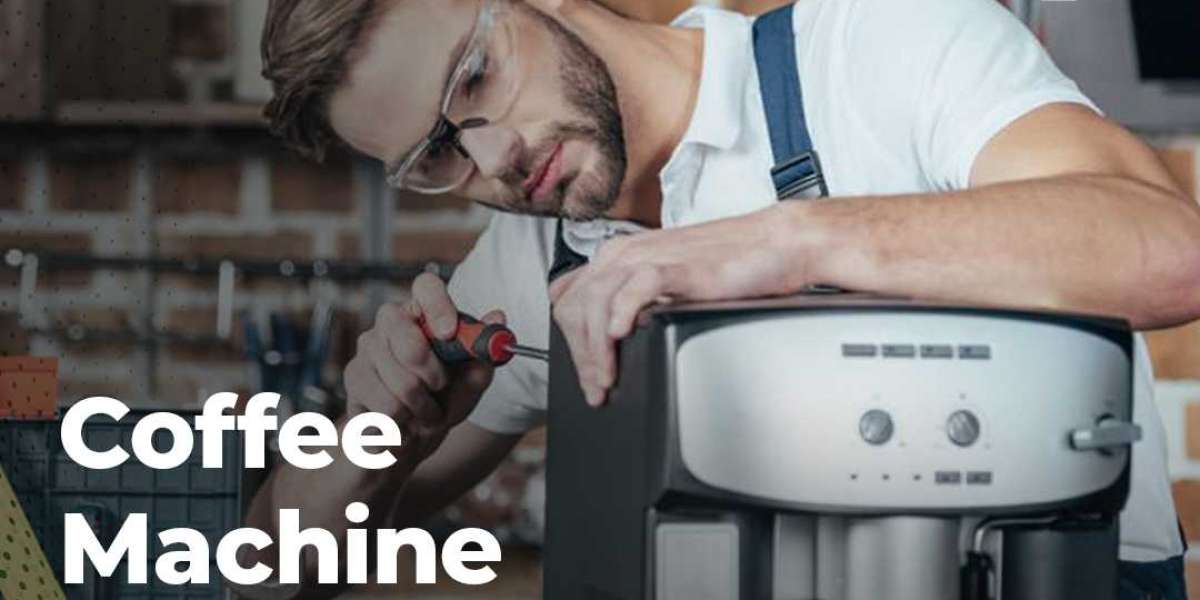Coffee has become an essential part of daily life for millions around the world. Whether you’re a casual coffee drinker or a dedicated aficionado, the importance of a well-functioning coffee machine cannot be overstated. But like all machines, coffee makers are prone to wear and tear, and there will come a time when you need to consider repair. This comprehensive guide will walk you through everything you need to know about coffee machine repair, helping you save money, time, and ensure that your morning brew is always perfect.
Understanding Common Coffee Machine Issues
Before diving into the repair process, it’s crucial to understand the most common issues that can occur with coffee machines. Recognizing these problems early can help you address them before they turn into costly repairs.
1. Coffee Maker Not Brewing
One of the most frustrating issues is when your coffee maker simply refuses to brew. This problem can be caused by a variety of factors, including:
- Clogged Water Lines: Over time, mineral deposits can build up in the water lines, preventing water from flowing properly.
- Faulty Heating Element: If the heating element fails, the water will not reach the necessary temperature to brew coffee.
- Broken Pump: In machines that use a pump to move water, a broken pump can halt the brewing process entirely.
2. Leaking Coffee Maker
A leaking coffee maker is not only annoying but can also cause damage to your countertop. Leaks typically occur due to:
- Cracked Carafe: A damaged carafe can lead to leaks during the brewing process.
- Worn Out Gaskets: The rubber gaskets that seal various parts of the coffee machine can wear out over time, leading to leaks.
- Loose Connections: Loose water line connections can result in water leaking from the machine.
3. Coffee Tastes Bad
If your coffee suddenly starts tasting off, it could be due to:
- Dirty Machine: Coffee oils and residues can build up in the machine, affecting the taste of your coffee.
- Old Coffee Beans: Using old or stale coffee beans can result in a subpar brew.
- Improper Water Temperature: If the water temperature is too low, the coffee will not extract properly, leading to a weak or bitter taste.
4. Coffee Maker Turns Off Mid-Brew
When your coffee maker shuts off before completing the brew cycle, it could be caused by:
- Electrical Issues: Faulty wiring or a damaged power cord can cause the machine to shut down unexpectedly.
- Overheating: Some machines have a safety feature that turns off the machine if it overheats. This can be due to a malfunctioning thermostat or heating element.
- Timer Settings: In programmable coffee makers, incorrect timer settings can cause the machine to turn off prematurely.
DIY Coffee Machine Repair Tips
While some coffee machine issues require professional repair, many common problems can be fixed at home with a little know-how. Below are some DIY tips to help you get your coffee maker back in working order.
1. Descaling Your Coffee Machine
Descaling is the process of removing mineral buildup from your coffee machine. This is particularly important if you live in an area with hard water. Here’s how you can descale your machine:
- Step 1: Mix a solution of equal parts water and white vinegar.
- Step 2: Fill the water reservoir with the solution.
- Step 3: Run a brew cycle without coffee grounds, allowing the solution to pass through the machine.
- Step 4: Once the cycle is complete, run two or three cycles with clean water to remove any vinegar residue.
2. Replacing the Water Pump
If your coffee machine uses a pump and it’s no longer working, you may need to replace it. Here’s a basic guide:
- Step 1: Unplug the machine and remove the back panel to access the pump.
- Step 2: Disconnect the water lines and electrical connectors from the old pump.
- Step 3: Install the new pump, reconnecting the water lines and electrical connectors.
- Step 4: Replace the back panel and test the machine to ensure it’s working properly.
3. Fixing a Leaking Coffee Maker
To fix a leaking coffee maker, you’ll first need to identify the source of the leak:
- Step 1: Check the carafe for cracks. If it’s damaged, you’ll need to replace it.
- Step 2: Inspect the gaskets and seals. If they’re worn out, replace them with new ones.
- Step 3: Tighten any loose connections, ensuring that all water lines are securely attached.
4. Cleaning Your Coffee Machine
Regular cleaning is essential to maintain the performance and taste quality of your coffee machine. Follow these steps:
- Step 1: Empty the machine of any coffee grounds and discard any leftover coffee.
- Step 2: Wipe down the exterior of the machine with a damp cloth.
- Step 3: Remove and clean any removable parts, such as the filter basket and drip tray, using warm soapy water.
- Step 4: Run a cleaning cycle with a descaling solution or a mixture of water and vinegar to remove any internal buildup.
When to Call a Professional
While DIY repairs can save money, there are times when it’s best to call in a professional. Here are some scenarios where professional repair is recommended:
1. Electrical Issues
If your coffee machine has electrical problems, such as sparks, smoke, or a burning smell, it’s crucial to stop using it immediately and contact a professional. Electrical repairs can be dangerous, and it’s best to leave them to someone with the right training and tools.
2. Complex Mechanical Problems
If your coffee machine has a complex mechanical issue, such as a broken heating element or malfunctioning grinder, it’s often more cost-effective to have it repaired by a professional. Attempting to fix these issues yourself could result in further damage.
3. Warranty Coverage
If your coffee machine is still under warranty, it’s advisable to contact the manufacturer or an authorized repair center for any necessary repairs. Attempting to fix the machine yourself could void the warranty.
Preventative Maintenance Tips
To keep your coffee machine in top condition and avoid the need for frequent repairs, follow these preventative maintenance tips:
1. Regular Descaling
Descaling your coffee machine every three to six months will help prevent mineral buildup and ensure that your coffee maker continues to function properly. This is especially important if you use hard water.
2. Use Filtered Water
Using filtered or bottled water instead of tap water can help reduce the amount of mineral buildup in your coffee machine, prolonging its lifespan and improving the taste of your coffee.
3. Clean Removable Parts Daily
To prevent coffee oils and residues from affecting the taste of your coffee, clean removable parts such as the filter basket, carafe, and drip tray after each use.
4. Replace Gaskets and Seals
Over time, the gaskets and seals in your coffee machine can wear out, leading to leaks and other issues. Inspect these parts regularly and replace them as needed.
5. Store Your Machine Properly
When not in use, store your coffee machine in a cool, dry place away from direct sunlight. This will help prevent damage to the machine’s components and ensure it’s ready to go when you need it.
Choosing the Right Coffee Machine Repair Service
When it’s time to call in a professional, choosing the right coffee machine repair service is essential. Here are some tips to help you make the best choice:
1. Look for Experience and Expertise
Choose a repair service that has experience with your specific brand and model of coffee machine. Technicians who specialize in coffee machine repair will have the knowledge and tools needed to diagnose and fix the problem quickly and efficiently.
2. Check for Certifications and Training
A reputable coffee machine repair service will have technicians who are certified and trained in the repair of coffee machines. Look for certifications from the manufacturer or industry organizations.
3. Read Reviews and Ask for References
Before choosing a repair service, read online reviews and ask for references from past customers. This will give you an idea of the service’s reputation and the quality of their work.
4. Compare Prices and Warranties
Get quotes from several repair services and compare their prices. Be sure to ask about warranties on parts and labor, as this can give you peace of mind that the repair will be done correctly.
5. Consider Turnaround Time
If you rely on your coffee machine daily, turnaround time is important. Ask the repair service how long the repair will take and if they offer expedited service for urgent repairs.
Conclusion
Coffee machine repair may seem daunting, but with the right knowledge and tools, many common issues can be resolved at home. Regular maintenance and proper care can also go a long way in preventing problems and extending the life of your machine. However, when in doubt, don’t hesitate to call in a professional, especially for complex or electrical issues. By keeping your coffee machine in good working order, you’ll ensure that you can enjoy a perfect cup of coffee every day, without interruption.








